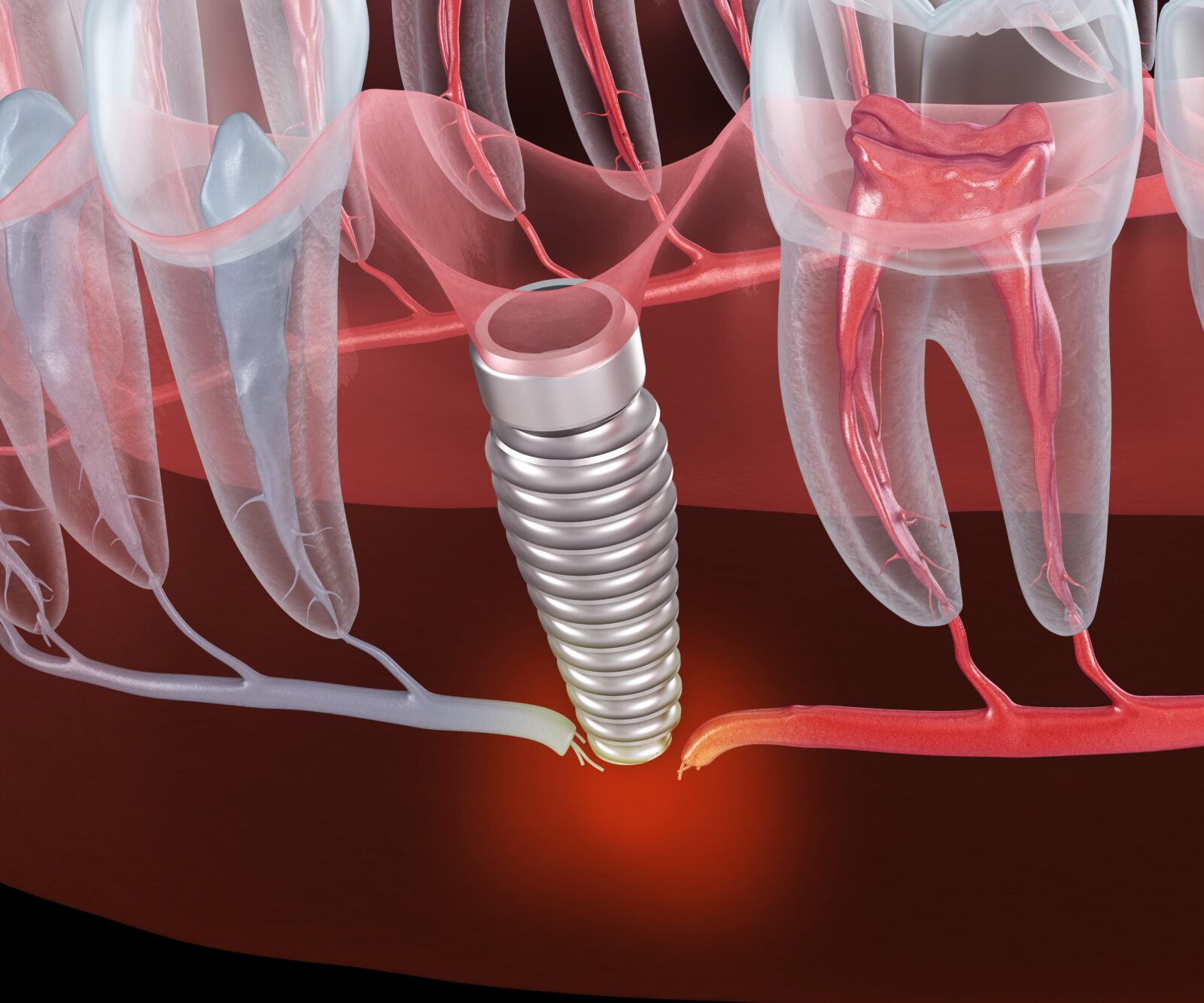Dental implants have revolutionized the field of dentistry by providing a durable and aesthetically pleasing solution for tooth replacement. They offer numerous benefits, such as improved chewing ability, enhanced appearance, and long-term durability. However, like any medical procedure, dental implant surgery can sometimes lead to complications. In this blog, we will explore some of the common complications associated with dental implants and provide insights into how to prevent or address them.
Common Complications
Infection:
One common complication associated with dental implants is the development of infection around the implant, a condition known as peri-implantitis. This condition typically arises due to the buildup of bacteria in the oral cavity, which can infiltrate the soft and hard tissues surrounding the implant. Recognizing the signs of peri-implantitis is crucial, as it can manifest with symptoms like persistent gum inflammation, bleeding, discomfort, and even mobility of the implant. Early intervention is of paramount importance because if left untreated, peri-implantitis can lead to bone loss, implant instability, and potentially implant failure. Regular check-ups with your dentist and practicing good oral hygiene, including thorough cleaning around the implant site, are vital steps in preventing peri-implantitis. Should any signs or symptoms arise, it’s essential to promptly consult your dental professional for evaluation and appropriate treatment to safeguard the health and longevity of your dental implant.
Prevention and Treatment:
- To prevent infection, follow your dentist’s post-operative care instructions diligently, including proper oral hygiene.
- Use prescribed antibiotics as directed by your dentist if an infection develops.
- Regularly attend follow-up appointments to monitor the healing process.
Implant Failure:
Implant failure is a significant complication that can occur with dental implants. Various factors can contribute to this issue, including inadequate bone density, poor surgical technique, or even smoking, which can hinder the implant’s successful integration with the jawbone. Recognizing the signs of implant failure is vital, as it can present with symptoms such as persistent discomfort, mobility of the implant, or a feeling of instability. Early intervention is crucial to address these issues effectively. When implant failure is suspected, seeking immediate consultation with your dental professional is essential. They can evaluate the implant’s condition, recommend appropriate treatments, and, if necessary, take steps to address any underlying issues that may have contributed to the failure. Early intervention not only enhances the chances of salvaging the implant but also ensures the patient’s long-term dental health and overall satisfaction with their implant-supported restoration.
Prevention and Treatment:
- Prior to surgery, your dentist will evaluate your bone density and overall oral health to assess your candidacy for implants.
- Choose a qualified and experienced implant dentist to minimize the risk of surgical errors.
- If an implant fails, it may need to be removed, and the area may need to heal before a new implant can be placed.
Nerve Damage:

Nerve damage is a relatively rare but significant complication associated with dental implants. This complication can occur during the implant placement procedure, particularly when dealing with implants in close proximity to nerve structures in the jaw. Nerve damage can lead to symptoms such as numbness, tingling, or altered sensation in the lips, chin, or tongue. Recognizing these signs is crucial as early intervention is essential. Patients experiencing any unusual sensations following implant surgery should promptly inform their dentist. Dentists can then assess the situation, determine the extent of nerve damage, and recommend appropriate measures to manage or alleviate the symptoms. In some cases, the nerve damage may resolve on its own over time, but in others, more specialized treatments may be required. Timely intervention is key to minimizing the impact of nerve damage and ensuring the best possible outcome for patients undergoing dental implant procedures.
Prevention and Treatment:
- Choose a skilled and experienced implant dentist who can accurately assess and avoid nerve structures during surgery.
- Discuss any concerns about nerve damage with your dentist before the procedure.
- If nerve damage occurs, it may resolve over time, but in some cases, additional treatment may be necessary.
Allergic Reactions:
An allergic reaction to dental implant materials, although rare, is a complication that individuals should be aware of. This reaction can occur when a patient’s body has an adverse response to the materials used in the implant, such as titanium or components of the implant, leading to symptoms like itching, swelling, or rash. Recognizing the signs of an allergic reaction to titanium is crucial, as early intervention can prevent the condition from worsening. Patients experiencing any unusual symptoms around the implant site should promptly consult their dentist. Dentists can then evaluate the situation, potentially conduct allergy testing, and recommend alternative materials or treatment options if an allergy is confirmed. Early intervention is essential to address the allergic reaction and ensure the patient’s safety and overall well-being during their dental implant journey.
Prevention and Treatment:
- Discuss any known allergies with your dentist before the procedure.
- If you suspect an allergic reaction, contact your dentist immediately. They can recommend alternative materials or treatment options.
Dental Implants Have a High Success Rate
It is important to note that while complications can occur, the vast majority of dental implants can be placed successfully. Dental implants have garnered a reputation for their remarkable success rate, making them a reliable and effective solution for tooth replacement. While individual outcomes may vary, dental implant procedures generally have a high success rate, typically ranging from 95% to 98%. These numbers are a testament to the advancements in implant technology, surgical techniques, and aftercare protocols. It’s important to note that complications, though discussed in this context, are relatively rare, and the vast majority of patients experience seamless integration and long-term stability with their dental implants. Dentists and oral surgeons take great care to ensure patient suitability for implantation, employ precise surgical methods, and provide detailed post-operative instructions to minimize the risk of complications. As such, dental implants continue to be a trusted and durable solution for restoring missing teeth and enhancing overall oral health and quality of life.
Conclusion
Dental implants are a valuable solution for restoring missing teeth, but like any medical procedure, they can come with complications. By choosing a skilled and experienced implant dentist, following proper post-operative care, and maintaining excellent oral hygiene, you can significantly reduce the risk of complications. If complications do arise, early detection and appropriate treatment are crucial for successful resolution. Remember to attend regular follow-up appointments with your dentist to ensure the long-term health and stability of your dental implants.



